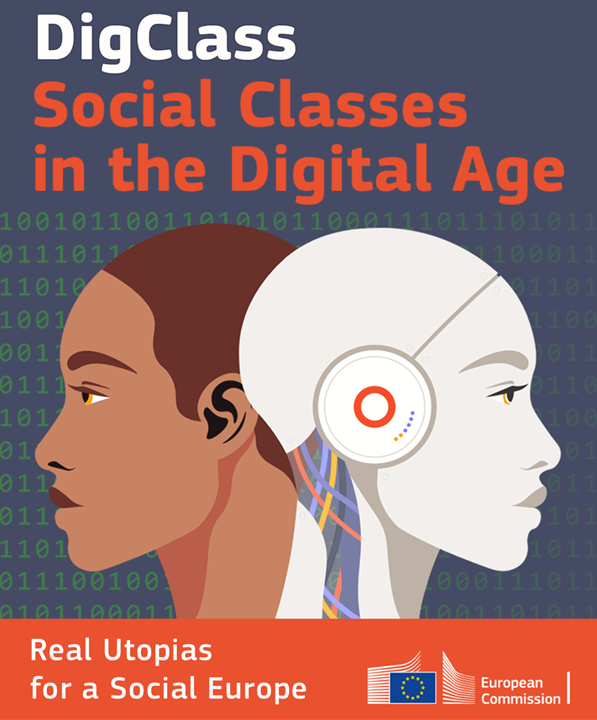Real Utopias for a Social Europe consists of a series of technical debate-type workshops on various bold and innovative social policy proposals. Leading academic experts and policy-makers assess and discuss the feasibility, distributional impact, costs, and scalability of these policy proposals through evidence-based on various designs such as pilots, field experiments, microsimulation exercises, and real policy experiences. The objective is to bolster a hivemind that can provide scientifically rigorous yet creative tools to tackle growing socioeconomic inequalities in the context of major social and economic transformations ahead.
The first workshop in the series addressed two types of universal benefits, namely universal inheritance (UI) and universal basic income (UBI). This high-level event, with more than 40 participants, brought together 30 high-profile international experts on different aspects of such policies. This workshop closely fits the European Commission’s priority of dealing with an economy that works for people.
Below you can watch the recorded sessions, read the summary report and check the programme of the first workshop on universal benefits:
Recorded Sessions
- redistribution of income | social inequality | social-security benefit | social policy | socially disadvantaged class | poverty | economic analysis | tax on income
- Wednesday 8 June 2022, 14:00 - Thursday 9 June 2022, 18:10 (CEST)
- Online only
- Live streaming available
Files
Practical information
- When
- Wednesday 8 June 2022, 14:00 - Thursday 9 June 2022, 18:10 (CEST)
- Where
- Online only
- Languages
- English
- Organisers
- Joint Research Centre
- Website
- Link to the workshop
- Social media links
Report

Day 1 - Wednesday, 8 June 2022
Universal Inheritance
14.00-14.30 Keynote speech: What is to be done? And how? Building a social science of radical reform: Michelle Jackson (Stanford University)
14.30-15.30 Roundtable: Universal Inheritance and Basic Capital: A New Avenue for Redistribution?
Chair: Abigail McKnight (Director of the Centre for Analysis of Social Exclusion, LSE)
Juliana Bidadanure (Director Stanford Basic Income Lab)
Stuart White (Jesus College, Oxford University)
Juan C. Palomino (UCM; Institute for New Economic Thinking (INET), Oxford Martin School)
Break
15.45-16.45 Policy proposals and simulations on Universal Inheritance
Chair: Julia Le Blanc (JRC-EC)
Discussant: Margit Schratzenstaller (WIFO - Austrian Institute of Economic Research)
A Fairer Italy: Universal Inheritance and Taxation of Lifetime Inherited Advantages: Salvatore Morelli* (University of Roma Tre; Stone Center on Socio-Economic Inequality at the GC - CUNY; Forum Disuguaglianze Diversità) and Elena Granaglia (University of Roma Tre; Forum Disuguaglianze Diversità)
Universal Capital Endowment and Wealth Taxes Could Reduce Wealth Inequality in Germany: Stefan Bach (DIW Berlin)
Universal Inheritance in four EU countries: Distributional and Budgetary Impact: Andreas Thiemann (JRC-EC), Guillem Vidal* (JRC-EC), José Antonio Noguera (UAB) and Leire Salazar (JRC-EC)
Break
17.00-18.00 Public attitudes towards universal benefits
Chair: Guillem Vidal (JRC-EC)
Discussant: Macarena Ares (UB)
Public Attitudes towards Universal Basic Income. Insights from Quantitative and Qualitative Studies: Femke Roosma (Tilburg School of Social and Behavioral Sciences)
Who’s in for no Strings? The Role of Individual and Cash Transfer Characteristics on Support for UBI: Leire Rincón (UB; IBEI)
Value-Oriented Preferences for UBI in a Deteriorating US Economic and Political Environment: Soren Jordan* (Department of Political Science, Auburn University), Kathryn Haglin (Department of History, Political Science; International Studies, University of Minnesota – Duluth) and Grant L. Ferguson (Department of Political Science, Texas Christian University)
Day 2 - Thursday, 9 June 2022
Universal Basic Income
14.00-14.30 Keynote speech: Olivier Bontout (European Commission, DG Employment, Social Affairs and Inclusion)
14.30-15.30 Roundtable: Universal Basic Income after COVID19
Chair: Júlia de Quintana (Ivàlua - Catalan Institute for the Evaluation of Public Policies)
François Bourguignon (Paris School of Economics)
Ugo Gentilini (World Bank)
- Valentina Martínez-Pabon (Tulane University)
J. Rhys Kesselman (School of Public Policy, Simon Fraser University; co-author of the Final Report of the British Columbia Expert Panel on Basic Income, 2020)
Break
15.45-16.45 Pilots on Universal Basic Income
Chair and Discussant: José Antonio Noguera (UAB)
(Re)thinking the Policy Impact of Basic Income Experiments: Jurgen De Wispelaere* (Stockholm School of Economics in Riga) and Joe Chrisp (University of Bath)
Some Impacts of the Manitoba Basic Income Experiment (Mincome): Pilar Gonalons-Pons* (University of Pennsylvania) and David Calnitsky (Western University)
The B-Mincome Pilot Project: Testing a (quasi)Basic Income at the Municipal Level: Bru Laín (B-Mincome, Barcelona Basic Income Experiment and Catalonia Office for Universal Basic Income Pilot)
Break
17.00-18.00 Experiments and Simulations on Universal Basic Income
Chair: Fidel Picos (JRC-EC)
Discussant: Sara Riscado (Economics and Research Department, Banco de Portugal)
The “Robot Economy” and Optimal Tax-Transfer Reforms: Ugo Colombino* (IZA) and Nizamul Islam (LISER, Luxembourg)
Universal Cash Transfers and Inflation: Ioana Marinescu* (University of Pennsylvania) and Damon Jones (University of Chicago)
- Robots, Labor Markets and Universal Basic Income: Antonio Cabrales* (UC3M), Penélope Hernández (UC3M and Universitat de València) and Ángel Sánchez (UC3M and Universidad de Zaragoza)
18.00-18.10 Closing remarks and presentation of Workshop 2: Leire Salazar (JRC-EC)
*Speaker
Background
The Real Utopias for a Social Europe series is organized by the DIGCLASS team within the JRC-Centre for Advanced Studies. DIGCLASS is a project born out of increasing concern in Europe about the implications of the digital revolution for social inequalities and democratic processes. The project aims to understand better how digital technologies alter the mechanisms that generate inequalities in the distribution of resources and life chances, which is crucial for social policies to respond to the challenges of the digital revolution.
Visit the DIGCLASS website to learn more about the project!
Drop us a line at JRC-CAS-DIGCLASS ec [dot] europa [dot] eu (JRC-CAS-DIGCLASS[at]ec[dot]europa[dot]eu) if you want to stay tuned with our seminar series, publications, and other activities.
ec [dot] europa [dot] eu (JRC-CAS-DIGCLASS[at]ec[dot]europa[dot]eu) if you want to stay tuned with our seminar series, publications, and other activities.
